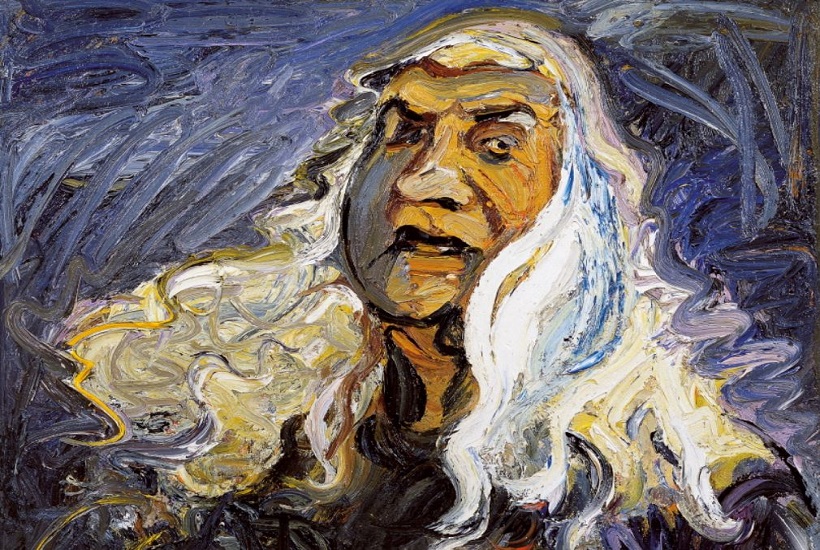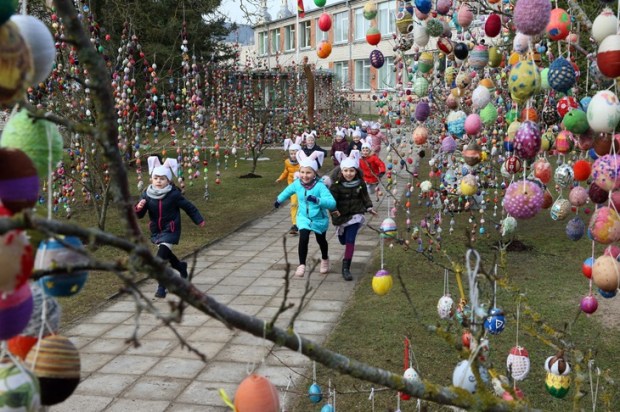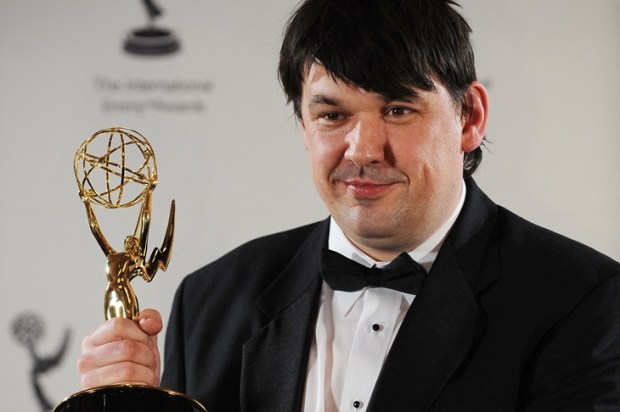Dorothy Hewett is the perfect illustration of what happens when feminism turns feral. The Sydney Morning Herald has said that Ian Syson, editor of the left-wing literary magazine Overland, described Hewett as “Australia’s finest living writer as a playwright and a novelist”. But according to her daughters, Rozanna and Kate, Hewett was more like a modern-day female incarnation approximating Marquis de Sade, the infamous French nobleman, revolutionary politician, philosopher, writer, and sexual libertine.
Hewett was a darling of the Left, and was intimately involved with a coterie of libertarian artists, photographers and poets, especially during the 1970’s, a period which Miranda Devine aptly describes as ‘the Devil’s Decade’. This was because, according to Devine, Hewett’s feminism meant that:
Sex was a political act. She called herself a feminist but she was brainwashed into a cult which gave men unfettered sex without the family responsibilities civilised society had painstakingly created over eons. Every taboo designed to protect the vulnerable from the predatory sexual instincts of men was torn down.
The Weekend Australian last week reported that Hewett’s daughters described the family home as “like a brothel without payment” and that people often referred to their mother “as being a female Don Juan”. Its piece continued:
These daughters of true believers say they were casualties of a predatory sexual code with the 70s libertarian arts culture that saw underage and teenage girls as “fair game”. “People liked having us at a party. We were these nubile girls, we were interesting jailbait objects,” says Kate, who claims she was sexually assaulted by a film producer at 15 and raped by a visiting poet several months later’.
It’s all eerily similar to the Bohemian practices of the Bloomsbury set, whom Gertrude Himmelfarb describes in her book, Marriage and Morals among the Victorians (Faber and Faber, 1986), as “not only homosexual but androgynous, near-incestuous, and polymorphous promiscuous”.
However, the lack of any real public outrage—especially from the likes of David Marr—is truly breathtaking. I mean, just imagine what his response would be if this involved a Catholic priest? As it is, his silence is almost deafening.
The only piece The Guardian Australia has published on the issue is by Brigid Delaney. But her rage is reserved exclusively for the former Labor speechwriter Bob Ellis who was one of the main sexual perpetrators named by Hewett’s daughters. Delaney sought our Ellis as a professional mentor, describing how, “As he talked about writing, I scribbled notes in my diary, his words falling like money that I tried to grab and pocket.” What’s more, notice how Delaney subtly minimises the reality of his abuse:
The uncomfortable question for me is this: does trading off Ellis’s cultural cachet and wisdom and turning a blind eye to the occasional misogynist rant and ugly rumours become a form of oppression of victim’s voices and a sort of collusion with the aggressor?
Then there are the comments of photographer Juno Gemes which speaks volumes regarding the double standard that has always existed within the Left, especially when it comes to the connection between feminism and sexual liberation. Gemes described Hewett as ‘a glorious feminist’ who ‘wanted her daughters to have access to the highest echelons of the literary world. I am really shocked that they’re casting their mother like this… I think she would be devastated by these allegations.”
What? These are not mere ‘allegations’. They have been reported to the Royal Commission on sexual abuse and they appeared in a major article in The Australian. So, they’re now well-known and established statements of fact which no one has denied or refuted. As The Sydney Morning Herald recently said:
The sisters say these are not new revelations, despite having sent shockwaves through the Australian literary community. The women say the behaviour was anything but a secret.
For example, in Hewett’s poem: In this romantic house each storey’s peeled, the literary icon writes: “Each storey’s peeled/for rapists randy poets & their lovers/young men in jeans play out seductive ballets/partner my naked girls.”
Unbelievably, according to Kate, “We were very explicitly encouraged, even enjoined by Mum to think, like her, that sexual attention was the be-all and end-all of everything.” Tragically, her sister Rozanna was subjected to much of the same kind of sexual promiscuity and licentiousness. Rozanna described her upbringing as follows:
We were brought up in a very bohemian environment and some of those experiences were worse than others. Mum really didn’t believe in not exposing us to anything. We grew up very fast, very hard in that environment. But there was no paedophile ring. It was just part of that time.
What is truly extraordinary about these revelations of abuse is that Hewett—guided by her atheistic and radical feminist philosophy—was complicit throughout. According to The Weekend Australian, when Rozanna:
Was just 13 when she was cast in a colonial-era film, Journey Among Women, about convict women who escape from their abusive guards and attempt to create a feral, women-only bush colony, complete with gratuitous nudity and lesbian romance.
Rozanna had her first period while on the set, yet she appears topless and naked in this “schlock” film and has “a lesbian affair with a judge’s daughter, which is ridiculous…My first experience of faux intercourse was having an actor on top of me, pretending to rape me in that film. I look back on that and I thought: ‘How extraordinary to put a young girl through that’.
Extraordinary? Or just plain criminal and even wicked? Especially when one considers that the film, Journey Among Women, premiered all the way back in 1977 when homosexual behaviour between consenting adults was still illegal. What’s more, “Her father once rescued her from the set when she became nauseous and drunk from consuming alcohol used in one scene”. But it gets even worse. Rozanna goes on to say:
Perhaps the really disturbing part is that my mother wrote the script, or sections of the script. She had a lot of fantasies about herself that she enacted through her daughters – and that would be a prime example.’ The film is still being sold on DVD.
The real tragedy of this whole sordid affair was that Hewett’s radical feminism—who championed female empowerment through sexual liberation—was integral in orchestrating the abuse of her own children. But that’s what happens when libertines fail to live by any limits.
Mark Powell is the Associate Pastor of Cornerstone Presbyterian Church, Strathfield.
Illustration: Geoffrey Proud/Art Gallery of New South Wales.
Got something to add? Join the discussion and comment below.
Got something to add? Join the discussion and comment below.
Get 10 issues for just $10
Subscribe to The Spectator Australia today for the next 10 magazine issues, plus full online access, for just $10.


























Comments
Don't miss out
Join the conversation with other Spectator Australia readers. Subscribe to leave a comment.
SUBSCRIBEAlready a subscriber? Log in